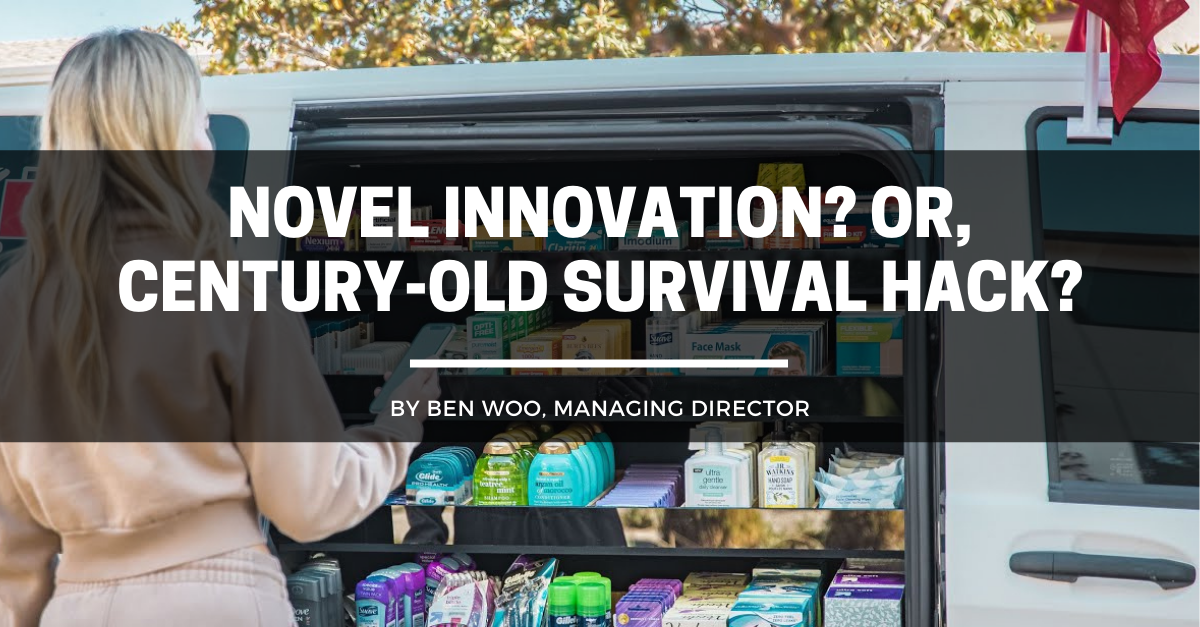News
Novel Innovation? Or, Century-Old Survival Hack?

By Ben Woo, Managing Director
The recent past has driven innovators to create solutions to consumers having less time, less money, and less stability. However, there is a segment of consumers who knew these restrictions way before COVID-19 – the global working class. People have done what it takes to get by long before the word ‘entrepreneurship’ was associated with doing so.
Pitched as a more convenient version of the convenience store, the Pharmacy Robomart provides an on-demand store on wheels in West Hollywood, CA. Up north in the Bay Area, a startup called Bodega aims to replace their namesake corner stores with high-design vending machines full of non-perishable convenience items. However, unlicensed versions of these have been running regular routes through Los Angeles food deserts for decades, from box truck bodegas to ice cream trucks decorated with unlicensed cartoons.
Lyft Line and UberPool were heralded as the “Future of Carpooling” by Time Magazine in 2015. However, this innovation originally emerged a hundred years (many recessions) ago in the form of jitneys. These were unlicensed cabs driven by newly unemployed yet capable adults, shuttling 150,000 people around Los Angeles daily in 1915. This isn’t unique to the US, either – South Africa’s minibus industry is responsible for 15 million commuter trips daily, which accounts for 75% of daily transport despite being informal and unregulated.
Another extension of the sharing economy came in the form of the “hacker house” or “co-living.” Companies like WeLive and Common popped up in 2017 offering innovative communal living, but the kibbutz offered a similar proposition over a century earlier.
What do all of these examples have in common? In each case, the needs that the companies were seeking to fill (and how to fill them) are enduring parts of the human condition. It’s important that marketers don’t overstate how novel these solutions are. Rather, marketers would be wise to focus on how a modern solution is more relevant to modern needs, placed in historical context – or risk getting headlines like “Very Innovative Silicon Valley Tech Company Accidentally Invents The Bus.”
